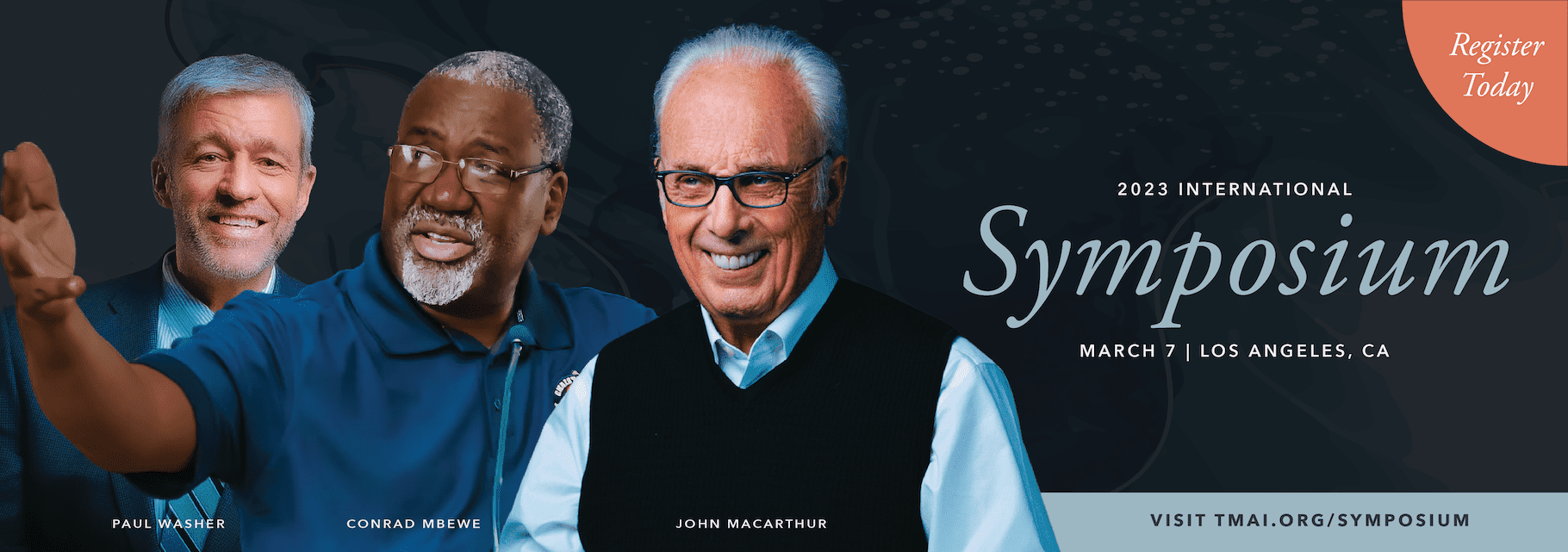This week’s post is sponsored by The Master’s Academy International (TMAI), a global network of pastoral training centers that specialize in expository preaching. They invite you to sign up for their 2023 International Symposium on March 7th in Los Angeles, California.
We sometimes hear that a mature church will be “all in” when it comes to missions, but we rarely define what that engagement can look like for every member of our church.
In 2023, with an ever-growing wealth of technology at our fingertips and an abundance of Christian expertise in many sectors of society, the question of how whole churches can support missions requires a careful answer.
As an extension of pastors preaching God’s heart for the nations and how to reach them, is there also a way for them to train our business professionals, schoolteachers, musicians, and others to leverage even their vocational skills for the good of the global church? Is there more to supporting missions than sending money and men?
We believe the answer to these questions is yes. And if you’re looking to shepherd your church towards greater maturity and missions-mindedness, we want to help you capture a vision for how to do that with all hands on deck. This is why you’re invited to join us at the 2023 International Symposium on March 7th, where we’ll enjoy keynote messages from John MacArthur, Conrad Mbewe, and Paul Washer.
While “missions proper” will always remain the work of sending pastors and planting churches, “missions support” can get much more dynamic than sending dollars. In fact, we’ve seen our own support network exploring creative ways to help local churches advance the word, and in doing this, they are following a godward trajectory of thinking that was recovered in the Reformation.
What the Reformation Recovered for Us
Prior to the Reformation, it was easy to embrace a sharp divide between “sacred” and “secular” aspects of life. Priests were privileged to do “sacred work” while the 9:00-5:00 labors of the common churchman could be considered “secular.” In this thinking, the everyday work of Christians was easily distinguished from the holy purposes of God.
But when the Reformers recovered their Bibles, they also recovered biblical insights that could repair that disconnect and show us how the Lordship of Christ graciously governs everything we do. The Reformers reclaimed a clear commitment to the priesthood of all believers (Rev 1:6) and spoke about how every Christian’s work is sacred unto the Lord (1 Cor 10:31; Eph 6:5–9). In teaching this, God’s word helps us understand that what we do from Monday to Saturday matters in the grand purposes of God.
And yet, even today, it seems there are dots left to connect when it comes to how the gifts of every church member can integrate with the Great Commission.
Where the Bible Reforms Us Further
Despite the biblical perspectives recovered in the Reformation, it’s still easy to slip into the belief that if we aren’t missionaries, then our role in the Great Commission doesn’t extend far beyond our checkbooks.
And while financial support of missionaries is entirely biblical (2 Cor 8:1–4; 3 John 8), we would do well to realize that, as it was in the Bible, our wealth involves more than our money (cf. Deut 8:11–18). And this means that our support can involve more than a check.
Because of this, we want to help churches expand beyond a one-dimensional view of supporting missions and grow into a deeper, more holistic mobilization of the church body.
Whatever your skillset and stewardship, it’s no accident that you have your gifts at this time in church history. You need only to consider how you can employ your gifts in the service of God’s word around the world.
To help your church become more missions-minded, join us Tuesday, March 7.









